Profiles
RIO Profiles
Learn more about the stories and research the students in the RIO program are working on.
| Rio Profiles 2023-2024 | |||||
|---|---|---|---|---|---|
|
Elianna Faith Aragon
Animal Science: Pre-Vet
|
Demetri Arciero Plant Science |
Christopher Barbar Kinesiology and Health Promotion |
Luna Bellido Political Science |
Alyssa Cruz Apparel Merchandising and Management |
Daniella Dockendorf Biology |
| Dani Ekbote Computer Science & Astrophysics |
Anairy Gonzalez Agribusiness and Food Industry Management |
Kailey Gonzalez Political Science |
Daniel Gutierrez Psychology |
Afnan Jaber Computer Information Systems |
Christina Jaimes Food Science and Technology |
| Bryan Liu Computer Engineering |
Andrea Avalos Lujan Apparel Merchandising and Management |
Mandy Luu Apparel Merchandising and Management |
Chardonnay Marquez Sociology |
Clover Martinez Psychology |
Vivian Martinez Criminology |
| Ian Mccurry Computer Science |
Angeles Abigail Marin Memije Geography: Geospatial Analysis |
Blanca Reed Biology |
Cynthia Sandoval Aerospace Engineering |
Benjamin Shutman Plant Science |
Adam Tamengkel General Anthropolgy |
| Gilbert Torres Anthropology |
Kevin Gautier Foyet Towa Computer Engineering |
Lawrence Tran Industrial Engineering |
Minh Khoi Tran Computer Engineering |
Nathanial Triay English Education |
Sara Guerrero Velandia Geology |
| Marlene Villa Kinesiology |
|||||
| Rio Profiles 2022-2023 | |||||
|---|---|---|---|---|---|
|
Isabella Andrade
Apparel Merchandising and Management
|
Esteban Cisneros Geography |
Gabby Ferraro Biology |
Brenda Flores Political Science |
Cherise Green English Education |
Simone Morgan Ibrahim Business Finance, Real Estate and Law |
| Jin Im Business Administration |
Anju Leach Finance, Real Estate and Law |
Amber Lloyd Animal Science, Pre-Vet |
Marisol Lopez Anthropology |
Fatima Martinez Biochemistry |
Priscila Mendieta Sociology |
| Bianca Misa Geography |
Kaitlin Paguio Biochemistry |
Ariana Perez Early Childhood Studies |
Dylan Russel Geography, Geospatial Analysis |
Karen Rios Chemical Engineering |
Sharon Saab Math |
| Gloria Tovar Computer Engineering |
Emily Tran English Education |
Minh Khoi Tran Computer Engineering |
|||

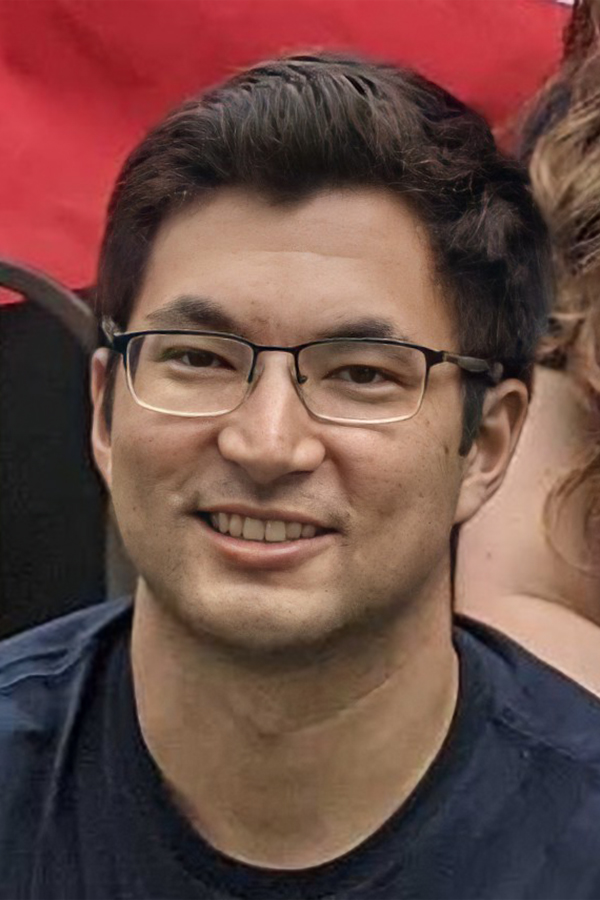
Alan Reeve
Geography Major
Alan Reeve
Major: Geography
CPP Faculty Mentor: Dr. Gabriel Granco
Alan is from Southern California and is bi-racial: his dad is white, while his mom is Chinese. He considers himself Chinese American, although he admits it feels weird saying that. He is studying Geography with a special interest in geographic information systems. He chose this area of study because of his love for maps and the stories they can tell.
Alan adds that it also helps that there is a healthy and growing job market for GIS analysts. He heard about the RIO program through his professor, Dr. Granco, and thought it would be a great opportunity for him to learn and practice skills applicable to his major. They meet weekly to discuss the project and to communicate findings. Additionally, Alan has enjoyed getting to know everyone in his research group.
Alan’s research project deals with mapping specialty crops in California (citrus, stonefruit, nuts, etc.) and using that information along with climate change models to predict where each of those crops will or will not be suitable to grow. The method of research involves using existing crop and environmental data and running it through a set of computer algorithms know as a Species Distribution Model.
Although his experience with RIO has been mostly positive, Alan has dealt with some struggles along the way. He says he had trouble balancing his class load with this research project. He eventually found a schedule that worked for him by setting weekly goals. He adds that meeting weekly with his research group helped a lot with this.
Part of Alan’s motivation for starting this project was to gain valuable skillsets. He wanted to practice using GIS and additionally learn skills necessary for his research. He also wanted to learn collaboration skills, and to get a taste of what academic research is like. Says Alan, “I am a firm believer in the scientific process and the potential it has to drive positive change in the world.”
Alan has already gained quite valuable skills thus far in RIO. He has gotten better at finding, and reading research articles, and feels more confident with engaging in future research projects. In fact, he sees his current research as a bridge to his future. He hopes to have a career doing the kind of work that he is doing in his research project.
Advice to Students
To those hoping to get into research for the first time, Alan has some very wise advice. He says: “Be willing to commit about the same amount of time and work as a class.”
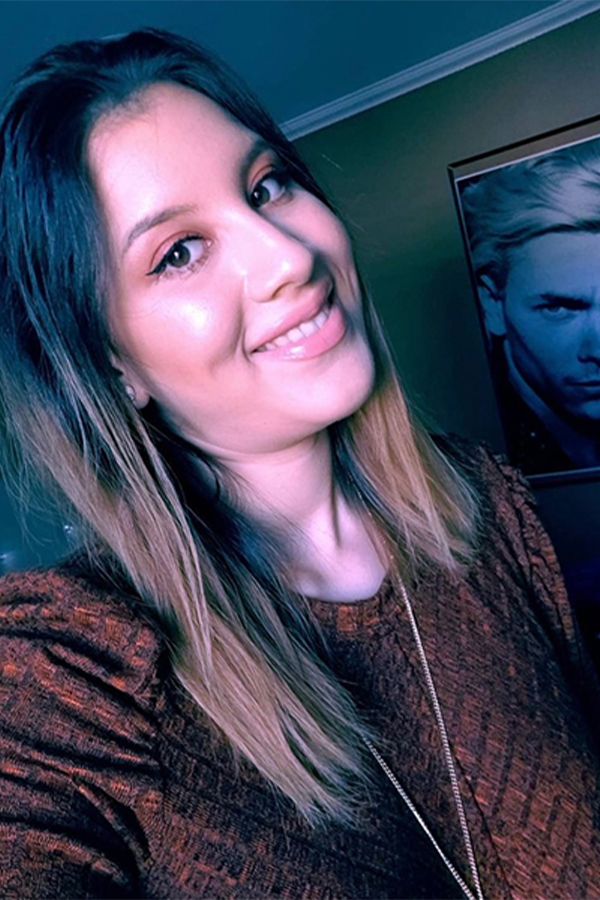
Alexis Aguilar
Anthropology Major
Alexis Aguilar
Major: Anthropology
CPP Faculty Mentor: Dr. Amy Dao
Alexis Aguilar is a third-year transfer student. Her cultural background is Hispanic, and she identifies as Latina. She is a self-described proud four-year vegan, animal rights activist, environmentalist, and a girl who wants to use her voice to make a positive difference in the world. Says Alexis, “I want to create a better future for my generation and those to come. It is my dream to be able to find a career where I can make this happen.” Alexis says that the RIO program experience has been an opportunity that she never imagined herself having. She adds: “I feel extremely fortunate to have this research opportunity where I can live out my passion and help make the world a safer and less scary place in these times of the COVID pandemic. My experience has been very rewarding and positive, and I am very thankful.”
Alexis’ research analyzes the way that multigenerational families face struggles living under one roof in during the pandemic. Through their research, they are attempting to pinpoint the most commonly faced issues and ways that those issues can be improved upon. Ultimately, they wish to make it easier and safer for multigenerational families to function during the COVID-19 pandemic.
Alexis felt inspired to undertake this project by her idol River Phoenix. River, says Alexis, was an animal rights activist, environmentalist, philanthropist, and humanitarian who spent his life trying to spread awareness of serious issues affecting humanity and the Earth. She knew that this research dealing with a widespread pandemic was something he would want those who he has inspired to partake in. Thus, she decided to participate in this research project in his memory and honor and to do what he would have done for humanity if he was still alive.
Alexis has learned numerous research skills while working on her RIO project, including in interviewing, ethnography, and coding, which, as an anthropology major, Alexis feels are all very useful to have.
Looking forward, Alexis feels strongly that her current research connects with her plans for the future, though helping make the world a better and safer place. She wants to carry on the legacy of those she most looks up to and become equally as revolutionary as they were. She wants to look for a career where she can apply her skills to make the world a better place, such as a career combating hunger, climate change, social injustice, epidemics/pandemics, and more.
Advice to Students
To those seeking to get started in research, Alexis cautions to make sure research is something you are passionate about, as it is very time-consuming work. “It takes a lot to make a change but if it is something you are passionate about, then follow your dreams!”
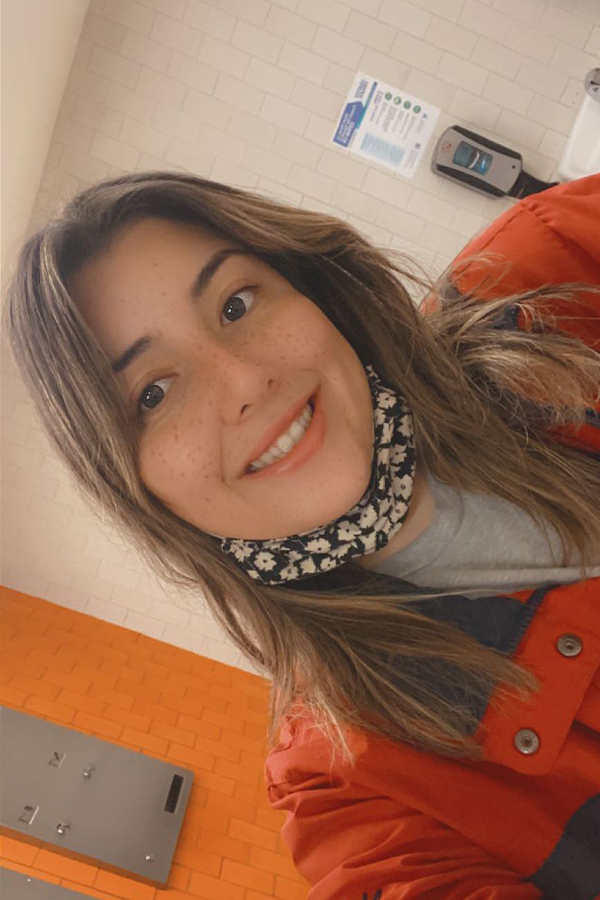
Alyssa Tenorio
English Literary Studies Major
Alyssa Tenorio
Major: English Literary Studies
CPP Faculty Mentor: Dr. Karen Tellez-Trujillo
Alyssa is a Latinx, first year transfer student at Cal Poly Pomona. She acknowledges that even though RIO is work intensive, it has also been a lot of fun. It can’t hurt that Alyssa has an incredible support group in her parents, who encourage her educational pursuits.
Working with Dr. Karen Tellez-Trujillo and research partner Estela Arreola, Alyssa is conducting interviews with Latinx community members and having them share their stories on resilience.
Alyssa was inspired to take on this project because she herself is a member of the Latinx community. Her grandparents immigrated to America to provide their family with a better life. Alyssa feels that because of everything that they sacrificed to come to America, she was lucky enough to be born here. Says Alyssa of the project, “More often than not people of color's voices don't get to be heard, and with this research project, our team has found a way to amplify some of their voices.”
As with any research endeavor, Alyssa has endured struggles along the way. At first, she was quite overwhelmed with the project expectations. However, sharing the workload with her research partner and amazing faculty mentor has helped diminish a lot of the stress. With weekly meetings, they take the project one step at a time, never biting off more than they can chew. Alyssa says that they help each other out along the way. She adds that her peer mentor has also been a great source of support, answering her program related questions day and night.
Along with the struggles, Alyssa has also gained valuable research skills. She has learned how to do a close reading on articles more efficiently, as well as how to write a literature review and abstract. In addition to gaining a skillset, this project has also made Alyssa feel more comfortable with pursuing more research projects in the future.
With regards to her academic future, Alyssa said any kind of research experience is beneficial in general. But specifically, the skills that she is learning in this program will transfer well into a graduate program, which she will pursue in the near future.
Advice to Students
To those seeking to participate in research for the first time, Alyssa has these wise words: “even though it feels totally overwhelming you are not alone. It is totally normal to feel that way and there are so many people in the program who want to see you succeed.”
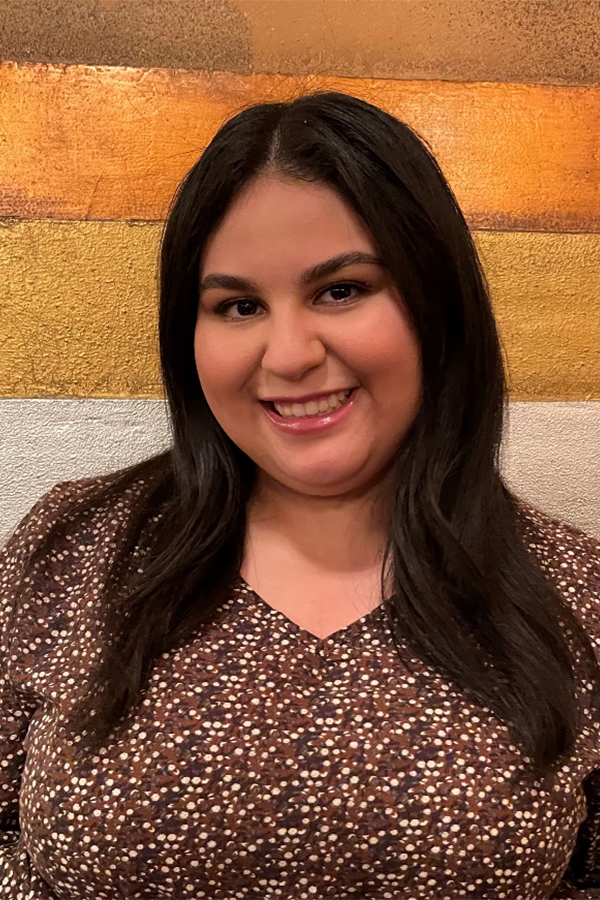
Anais Hernandez
Communications Major, Journalism Emphasis
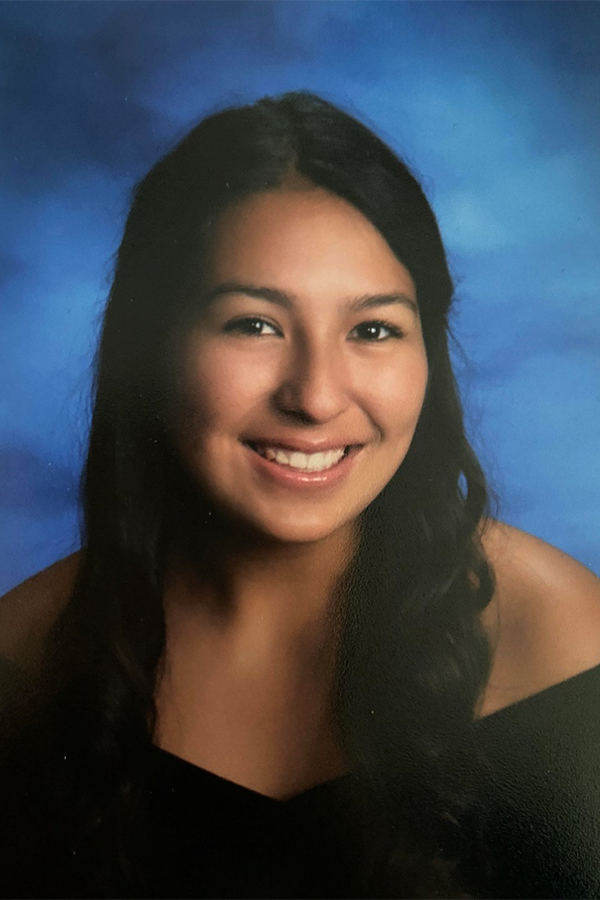
Destiny Almaraz
Political Science Major
Destiny Almaraz
Major: Political Science
CPP Faculty Mentor: Mary Anne Mendoza
Destiny Almaraz is an incredible and multi-faceted sophomore here at Cal Poly Pomona. She is majoring in Political Science and is minoring in International Business. Destiny is a southern California local who grew up in Placentia, California. She has taken on the challenges of the transition back to in-person learning and is excited to take on this new academic journey.
Destiny’s research project focuses on the transition to remote learning and the way that it influenced the opinions of first-generation students and respectively their role in the classroom. Destiny is passionate about studying first-generation students because of her firsthand experience and the problems that many of these students had during hybrid learning. Her goal is to present a comprehensive project that contains firsthand data to determine the differences in students' opinions in a hybrid learning setting.
Destiny's main motivation to join the RIO program and to participate in research is her professor and advisor Mary Anne Mendoza. Her faculty mentor has given her the strength to take on the challenges of research throughout her time here at CPP. Destiny is extremely motivated by her mentor, and it has allowed her to understand her future academic goals. Destiny hopes to continue her educational journey after her bachelor's degree.
Destiny has been able to overcome her struggles when doing research by learning about how to ask specific questions. She has gained many different research skills through the RIO program such as conceptualizing research and how to instruct research. It has allowed her to broaden her view about different research concepts.
Destiny has an exceptional confidence level after engaging in research and loves the community that surrounds her. Her plans include attending graduate school and striving to attend law school as well. She wants to prioritize her educational journey and hopes to inspire others to do the same. She hopes to start a foundation or organization within the law school that she chooses in order to provide resources to first-generation students and students affected by the pandemic.
Advice to Students
Destiny’s advice to prospective undergraduate researchers would be “Future students that want to conduct research must understand that it's okay to not have a set question yet and to do something that you are actually interested in even though it might not seem possible.”
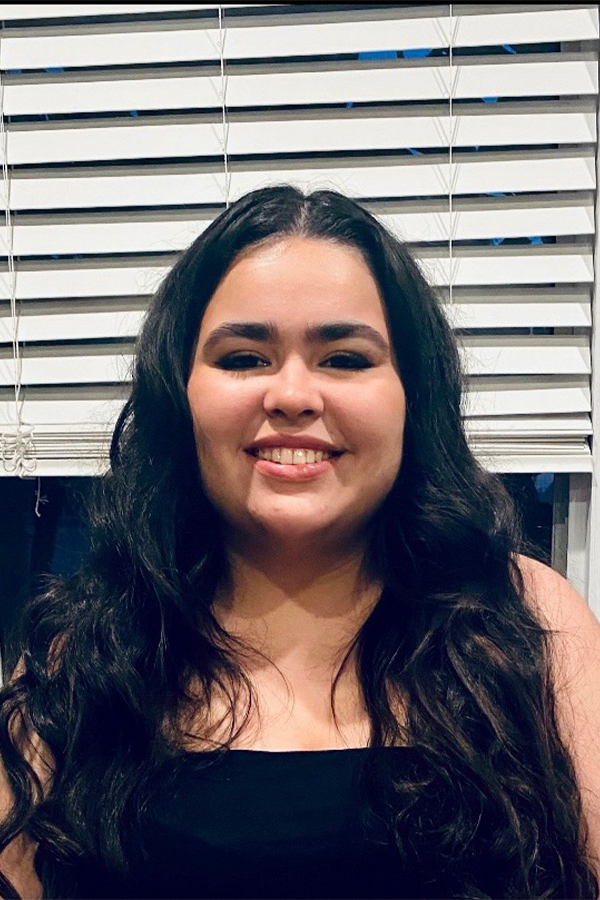
Eryn Navarro
Philosophy Major
Eryn Navarro
Major: Philosophy
CPP Faculty Mentor: Peter Hanink
Eryn is a first-generation college student and local to Los Angeles, California. The RIO program has allowed her to explore different research opportunities through weekly reminders and semester-based workshops. Eryn loves the inclusive environment that the RIO program offers and is excited to further her academic journey.
Eryn's research project poses the question: “Is it okay to break the rules?” This research project looks at morality and judgement in certain scenarios. Eryn challenges the complicated nature of rule breaking and aims to prove why it could be acceptable in certain contexts, while also looking at ethical theories, known as Deontological and Consequentialism.
Eryn’s motivation for this project came from wanting to explore theories that she was already familiar with. She would learn about different topics and find herself disagreeing with certain ideas. She was excited to take on her research project to find out how people would use their moral judgments when caught in the middle of typical practices. Eryn was able to overcome a common student problem of time management through this research project through planning and organizing.
The research skills that Eryn has taken away from this project so far include narrowing down her searches and focusing on keywords in order to become a more concise scholar. Before RIO, she often found herself searching for information, but because she was too vague, she became overwhelmed with too much information. Using the new skills she learned from RIO has allowed her to save time and get efficient results.
Eryn has gained immense confidence from participating in research, and her first project has inspired her to participate in more projects in the future. Eryn's research connects with her academic and personal goals because of her love of working with others. She wants to better understand different thought processes and perspectives on different topics, such as rule-breaking and moral judgment.
Advice to Students
If Eryn could give any advice to anyone who wants to participate in research she would say “make sure that you manage your time wisely. It's very easy to put off work and relax, but getting things done sooner will be beneficial. You won't have to stress so much about doing so much in so little time and be able to have time for yourself! Also, look for research that involves things you're interested in!”
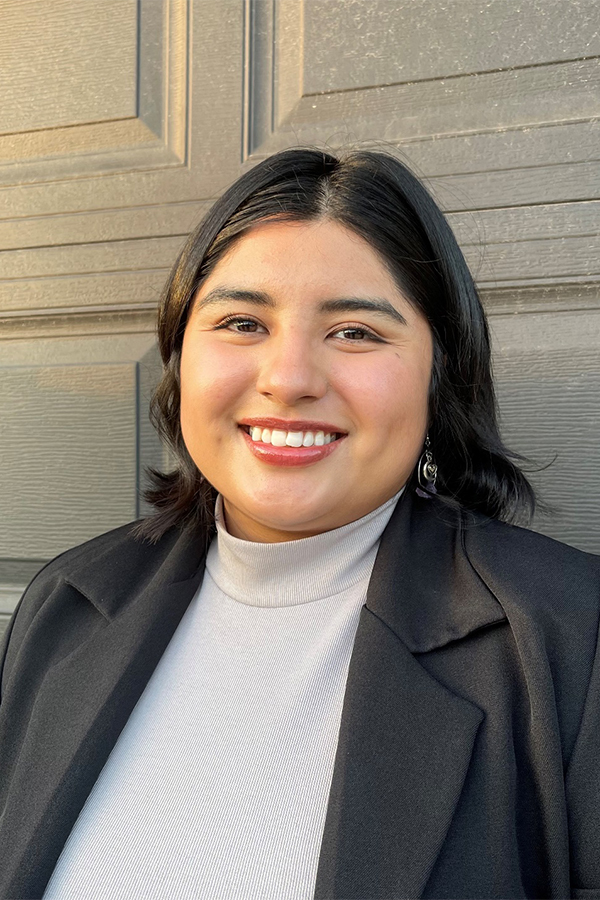
Estela Arreola
English Education Major
Estela Arreola
Major: English Education
CPP Faculty Mentor: Dr. Karen Trujillo
Estela is a Latinx woman from the Central Valley and her cultural background is Mexican. She was born and raised in Modesto, CA. She is a plant enthusiast and enjoys reading, knitting, and baking. She comes from a big family. She has 5 younger siblings and 4 dogs.
Estela says that her RIO program experience has been very welcoming and positive thus far. Additionally, she remarks that her faculty advisor and peer mentor have been incredibly helpful. She adds that the workshops have also been conducive to her research.
Estela’s research project revolves around Latinx/Chicanx women and their resilience. She and her team seek to collect the stories of resilience of women of color in California. She says that a lot of their writing revolves around documenting and memorializing stories that are typically overshadowed.
Estela was inspired to partake in this project because as Latinx woman herself, she felt it important to dedicate time to a research project that not only she can relate to, but also many other women of color could as well. Estella felt a responsibility to her community to not only document their stories but also provide an opportunity for them to see someone that looks like them doing this type of work. Says Estella: “I was inspired by the many women of color that have influenced my life like my mother, aunts, grandmothers and women in my community.”
Estela’s biggest struggle along the way of her research journey was determining what questions to ask and how to ask them. She and her team overcame these struggles by compromising on what they felt was the best for themselves, as well as the people they interview.
Estela has gained valuable research skills participating in the RIO Program including how to read academic articles in an efficient way and how to utilize them in research. She has also gained experience with literature reviews and the knowledge of how useful they can be in her academic career.
Most importantly, Estela now feels more confident with engaging in future research projects. Estella says: “Now that I know I am capable of doing research projects I will be more willing to participate.”
Estella sees her research connecting with her plans in the future because through her research, she is learning skills that will prove helpful in her career. Estella says, “As a future educator, I can use this experience to help my students and able to talk about what I did and have information for them if this is something they are interested in. Having tools like these to share and help students is so important.”
Advice to Students
Estella had some great advice for undergraduates seeking to participate in research for the first time. She says to not be scared to ask questions, or to share ideas, since all input is valuable.
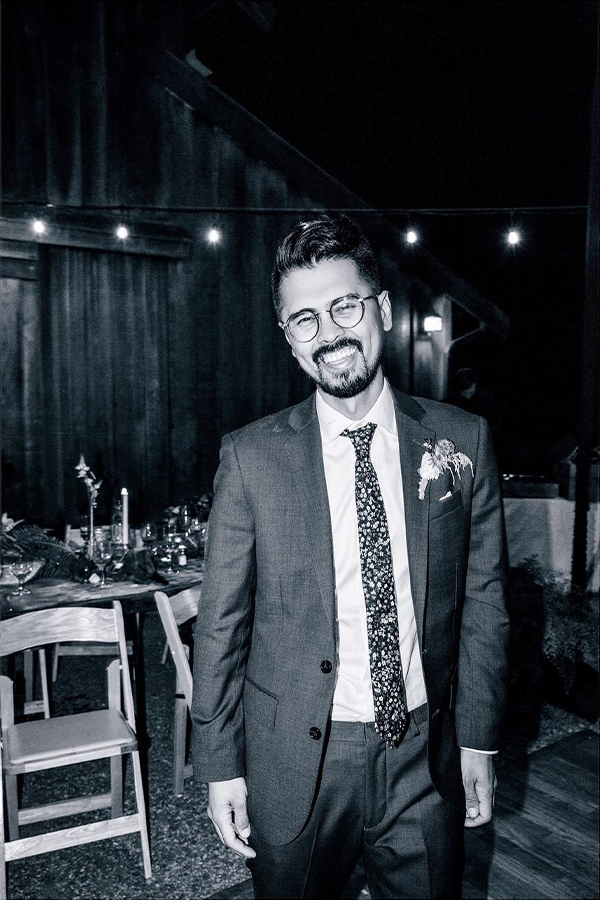
Gerard Pitpitan
Geography Major, Geospatial Analysis Emphasis
Gerard Pitpitan
Major: Geography - Geospatial Analysis
CPP Faculty Mentor: Dr. Gabriel Granco
Gerard was born in the Philippines and is the third of four siblings. He is also the proud parent of a beautiful baby girl. He says that while being a new parent has been quite challenging at times, it has also been incredibly rewarding and life changing. His family immigrated to the US when he was about two years old, in 1987.
Like many students, Gerard did not have a straight path with his college education. He started out at Pasadena City College but had no idea what he wanted to do with his life. He attended school off and on, meanwhile working in a variety of industries. In the last 15 years, he has had many eye-opening experiences, met a variety of people, many in leadership roles, and has gotten to travel extensively, both domestically and internationally. Gerard says it was these collective experiences that provided the foundation and the perspective that he needed to find the path he finds himself on today.
Gerard has had a positive experience in RIO, thus far. He finds it rewarding to be involved in work that has the capacity to create immense positive change on the world. He feels fortunate to work with talented individuals in the program who come from a variety of backgrounds. He adds that his faculty advisor, Dr. Granco, has been incredibly supportive throughout his time in the program.
The goal of Gerard’s project is to identify specific locations in California that provide the most ideal conditions to grow specific kinds of crops while also considering the effects of climate change on the region. Gerard says that since agriculture is one of the major economic powerhouses of California, and climate change is having a significant effect upon it, particularly through prolonged droughts, it is important that researchers find better, more efficient ways to utilize the available land for agriculture while conserving critical natural resources like water, all while balancing the needs of farmers and consumers.
Gerard was inspired to take on this project because of an article he read about a California farmer who warned that unsustainable farming practices that were stressing California’s natural resources to the breaking point. He says that upon reading the article, he felt compelled to sign on to Dr. Granco’s project, since it could potentially help solve the issues he had read about in the article.
While in the program, Gerard has learned his research colleagues are a valuable resource that should be utilized as much as possible. He notes that much of the work he’s doing builds upon a foundation laid down by current and past students working together as a team. In addition, he has also relied upon his faculty advisor, whom he says has been incredibly supportive throughout the process.
Gerard says that participating in this project has given him valuable and insight into narrowing down the kind of work he wants to pursue within his field of study. He adds that much of his life has been shaped by challenging himself to take on unfamiliar paths. Therefore, he thinks it’s critical to have a wide range of knowledge to draw upon in whatever path he decides to focus on in the future.
Advice to Students
To those seeking to get into research, Gerard says to not be afraid of the challenge. He wisely adds to stay curious and seek out answers to questions on your own first, but not to hesitate to reach out to others for help, advise, or to bounce ideas off of. Says Gerard: “I've learned that there are so many people and resources here at CPP that are there to support and enable us to succeed.”
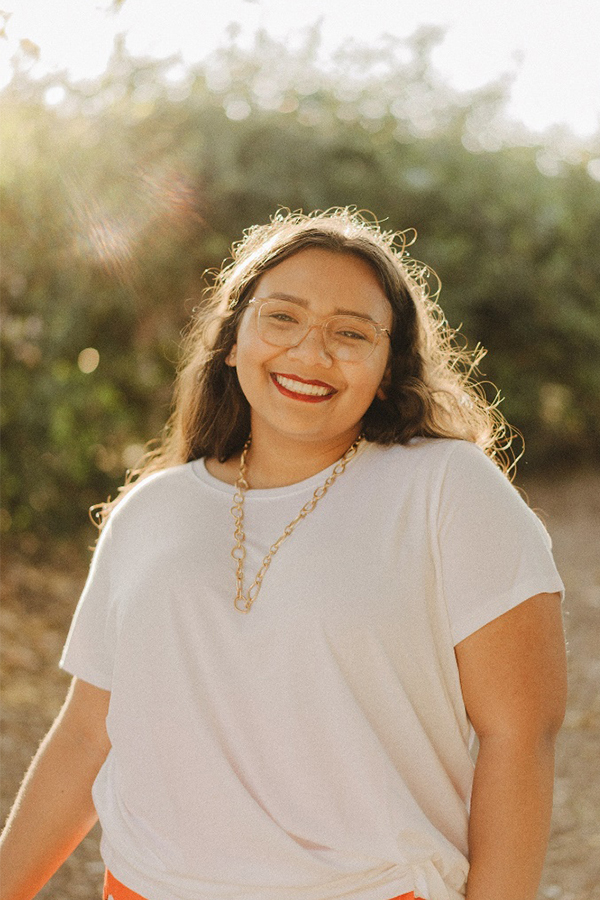
Isabel Rodriguez
Communications Major, Public Relations Emphasis
Isabel Rodriguez
Major: Communications- Public Relations
CPP Faculty Mentor: Dr. Nancy Quintanilla
Isabel Rodriguez is an outstanding junior here at Cal Poly Pomona studying Communications with a Public Relations emphasis and minoring in Writing Studies. She is a local southern California resident and Latina who wants to make a difference in her community. Her RIO experience has allowed her to explore many areas of undergraduate research and connected her with peers and faculty mentors that have enriched her academic experience.
Isabel is participating in a research project that seeks to understand how Central American migrants and second-generation, US-born Central American people responded to the COVID-19 pandemic in Los Angeles County. Her project highlights how Central Americans, who escaped 1980’s civil wars, adapted to this crisis through reverting to wartime survival strategies.
As a Latina who currently lives in Los Angeles County, Isabel was inspired to do this project because of the impact that COVID-19 had on her community. She witnessed firsthand how effects of intergenerational trauma about personal responsibility and familial approaches. This project motivated her to become involved to explore further connections between trauma and ties to the current pandemic.
Isabel, through the RIO program, has been able to develop her career skills through participation. It has allowed her to gain confidence and helped encourage her to pursue projects in the future and helped foster her academic growth. She hopes one day to pursue a job in politics and wants to use her voice to advocate for the Latinx community in order to foster worldwide change.
Advice to Students
Isabel’s advice to other undergraduate researchers would be “to take advantage of the opportunity to participate in undergraduate research as there are many benefits.”
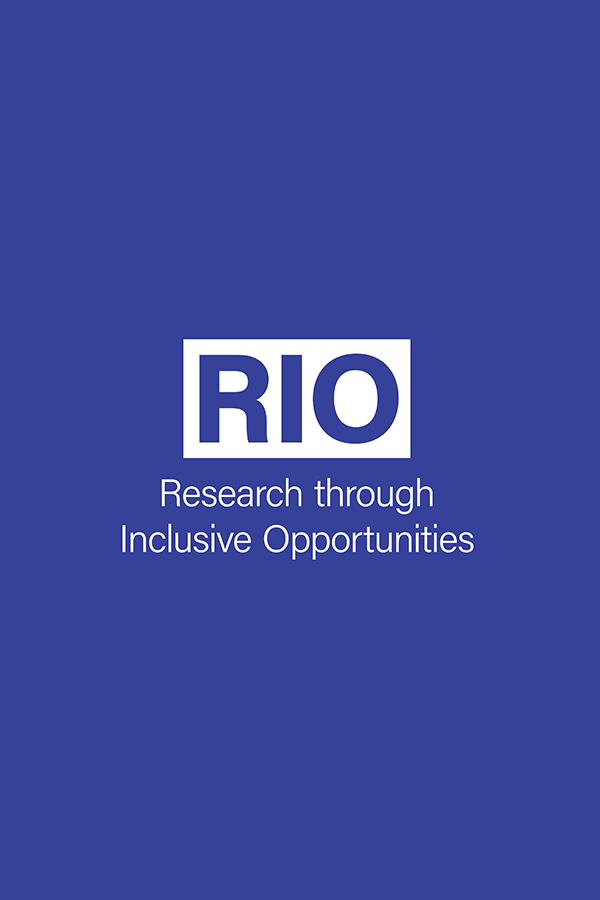
Mari Minasian
General Anthropology Major
Mari Minasian
Major: General Anthropology
CPP Faculty Mentor: Dr. Amy Dao and Julia Neris
Mari Minasian is a General Anthropology major and a third-year transfer. She says that the RIO program has become a necessary factor in her life. Her project has mobilized her to seek out ways to help those less fortunate than her. She has interviewed various communities and gotten to hear about many different life experiences. Although Mari is majoring in General Anthropology, she has a lifelong goal of becoming a dentist. She will apply to dental school in June. She is looking forward to the fruits of her research, along with the culmination of the heavy load of her studies, as she prepares for the Dental Admission Test.
Working with Dr. Amy Dao and Julia Neris, Mari’s research centers around the feasibility of isolating after testing positive for COVID-19. Mari says that the inability to self-isolate is a factor that requires much attention regarding safety, as well as the reasons why mortality occurs in different populations. Mari says that low-income individuals are more likely to live in areas that are distant from grocery stores and are thus unable to easily access fresh food. Households in these areas are often multigenerational, and thus it becomes incredibly difficult to social distance. Furthermore, these individuals are more likely to be uninsured and without paid sick leave. Mari is currently analyzing these factors in her literature review.
Mari was inspired to do this project because she herself comes from a multigenerational household. Through her research, she wants to give a voice to those that generally are not heard, and to help students, faculty mentors, and people outside of the community to have a broader understanding of what is going on in the world.
While in RIO, Mari has learned a lot of important research skills, such as paying greater attention to detail, and how to conduct, code, and take notes of interviews. Furthermore, she is now more confident with engaging in future research projects. She says that everyone must start somewhere, and she is very happy that this project was her first foray into research.
Mari says that performing research has greatly helped her prepare for her future, but also has made her appreciate the use of research in our everyday lives, such as checking for a place to eat on one’s phone. She adds that the program is enhancing her ability to deal with the news and information that is constantly being thrown at us in the modern world. She is gaining both increased awareness and a capacity to process information more efficiently.
Advice to Students
To students who are as curious to get into research, Mari suggests that they go for whatever interests them. Additionally, she encourages students not to hesitate to reach out to faculty mentors as they are there to help and guide. Mari adds, “It really is a rewarding feeling and may challenge you to do better in your studies.”
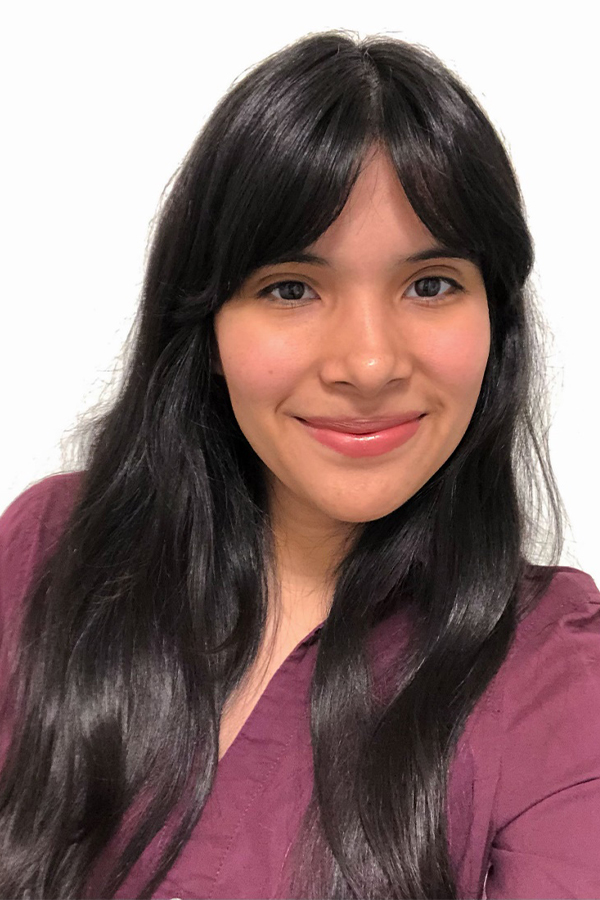
Maria Pia Matos Lujan
Political Science Major
Maria Pia Matos Lujan
Major: Political Science
CPP Faculty Mentor: Dr. Laureen Hom
Maria Pia is an extraordinary junior Political Science major who was born and raised in Lima, Peru. Her upbringing has inspired her passions for nature, writing, and photography. Maria Pia values her enriching RIO experiences because it has allowed her to explore her research passion regardless of where she comes from. She is grateful for a new understanding of what it is like to be a successful researcher.
Maria Pia is working with Dr. Hom on her research project that examines the leadership structure in Los Angeles Chinatown. She is learning about how their experiences and perspectives contribute to factors such as the neighborhood’s preservation. Additionally, Maria Pia analyzes the evolution of these factors amid gentrification concerns.
Maria Pia was motivated by the opportunity to learn about the challenges that minorities face in the United States. She concentrates on immigrant women overcoming obstacles and excelling, and it has encouraged her to participate in this specific project. Through this project, she has not only gained impressive research skills, but writing skills that will carry over into her senior thesis and future career prospects.
When looking towards her future, Maria Pia has become more comfortable when collaborating with other faculty members and it has inspired her to start her own research project! Her future goal is to become an immigration attorney. She would also like to continue working on research projects that study minorities. In particular, she wants to use her heritage and academic knowledge to research indigenous people from Peru.
Advice to Students
For undergraduates who want to do research themselves, Maria has this amazing advice: “I advise future students to take advantage of every academic opportunity available to them while in college, to step outside of their comfort zone and work on projects that they are passionate about; no matter what your circumstances are, there are always people willing to assist you to succeed in your career.”
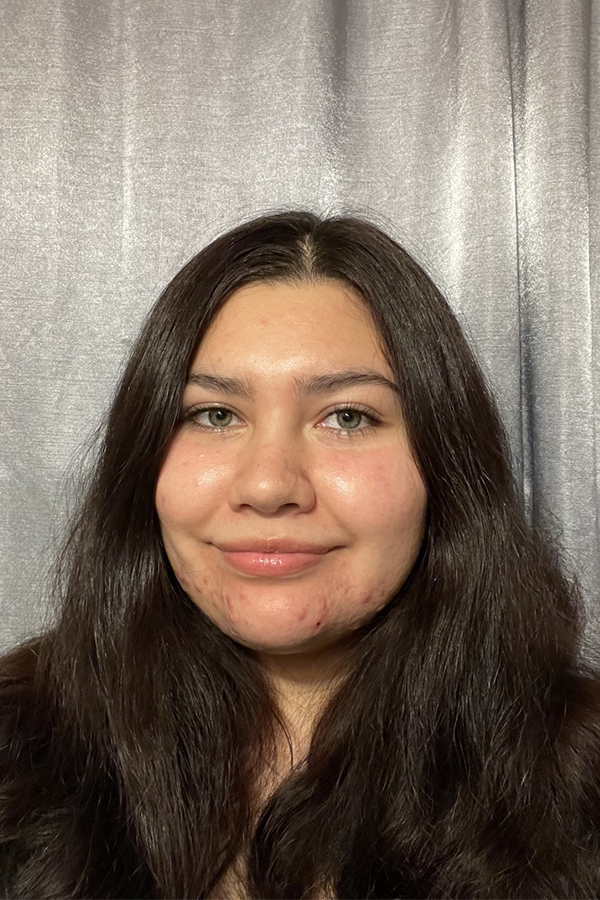
Natalie Doroteo
Geography Major
Natalie Doroteo
Major: Geography
CPP Faculty Mentor: Brady Collins
Natalie Doroteo is an incredible second-generation Mexican American student who is majoring in Geography with an emphasis on environmental studies. She recently transferred from Chaffey college and is a first-year transfer student, who is accomplishing amazing things in her research field. Her RIO experience so far has been engaging and informative and has allowed Natalie to learn so much through her peers and research methods.
Natalie's research project is about the expansion of transportation in Los Angeles, and it is currently one of the largest public works projects in the United States. She is focused on the extension of the purple line. The purple line is an underground light-rail project expected to be finished in 2028 and cuts through communities of various socioeconomic and demographic profiles. This research project is important to Natalie because of the way that transportation is often used by lower income and working-class residents. In this research project, Natalie wants to focus on how residents, workers, and students in these communities perceive and experience transit expansion in their community through interviews and surveys.
Natalie became motivated to participate in this research project. She had the opportunity to experience the work that goes into a research project and additionally collaborate with peers and professors. Natalie loves the aspects of research, and it has inspired her to become confident in her own research. She wanted to study her topic on the purple line because of the diversity in Los Angeles and how public transportation in that area will be affected by gentrification due to expansion.
Natalie has gained immense skills through participation in the RIO program. These skills include communication, time management and independent work skills. These skills will help her in research going forward and in her future academic endeavors. The RIO program has increased Natalie’s confidence because of her exposure to what is behind a project. Her research connects to her future goals because of the way that it has informed her about topics she is passionate about. She wants to use what she has learned to discuss important topics such as climate change and racial discrimination.
Advice to Students
If Natalie could give any wise words to undergraduate researchers that want to get started, she would say “Research allows you to understand issues and increase awareness. I think it is important to be able to communicate your research so that you can push yourself and others toward a common goal.”

Alyssa Cosby
Psychology Major

Abigail Dizon
Political Science Major

Jake Sherratt
Philosophy Law and Society Major

Raneen Vace
Political Science Major

Ash Velazquez
Psychology Major

Steven Wrublevski IV
Political Science Major

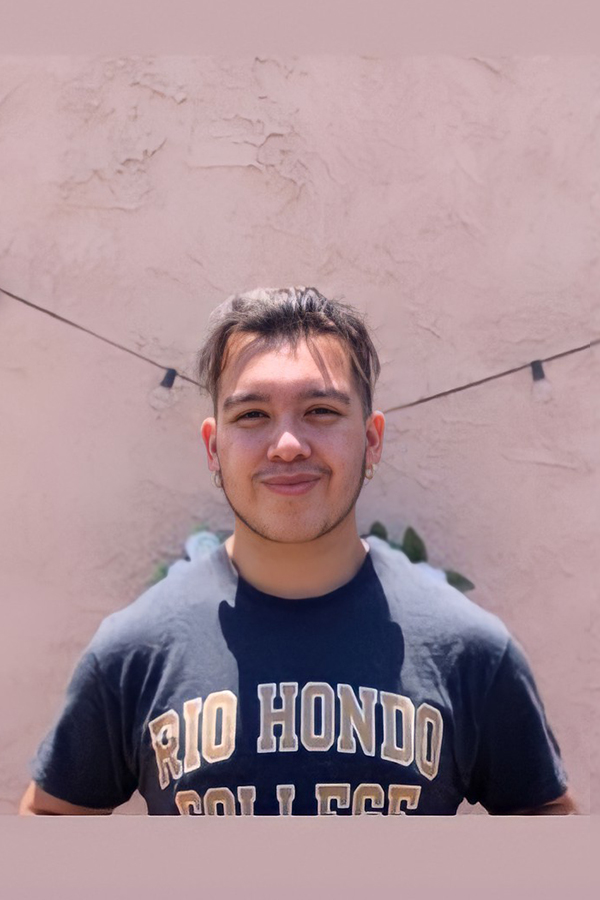
Andres Camacho
Biology Major
Andres Camacho
Major: Biology
CPP Faculty Mentor: Dr. Priti Sanexa
Andres Camacho’s story highlights his Guatemalan and Mexican heritage and his experiences being a first-generation student. As the oldest sibling, Andres wants to set an example for his younger siblings by accomplishing his academic goals. Andres received an associate degree in Biology this past year from Rio Hondo College and it has reinforced that Biology is his true passion. He is extremely grateful for this opportunity to be involved in the RIO program because it helped him reach his goal of participating in research.
He is part of Dr. Saxena's Plant Breeding Research Program. Andres focuses on genetically improving organic tomatoes and developing strategies to further their growth. Additionally, he is harvesting and collecting data from the matured tomatoes in order to measure physical characteristics, the health of the tomato and the amount of sugar in each one.
Andres’ inspiration for his project stems from the want to improve the world around him. When he was first learning about this research project and its potential, he wanted to achieve the goal of growing healthier tomatoes. He was also interested in gaining more data analysis experience, which he was able to accomplish with ease. The Plant Breeding Research program has allowed Andres to grow in his observation skills, plant breeding techniques and most importantly teamwork! He can take this real-life research experience and apply it to his future research endeavors.
In his future research opportunities, Andres wants to study an organism that is on the verge of extinction. He wants to understand both what caused this organism to become endangered, and what this species would require to survive. The methods he is learning now will help him with different research projects and jobs beyond!
Advice to Students
Some advice that Andres would like to give to aspiring undergraduate researchers is to first attend a research conference and ask questions. It is important to figure out which topics interest you and do some research on them before applying. He appreciated having a mentor for support and guidance and believes that it is essential for student success.
“If you are feeling disheartened because you think you don't fit in, feel like you don't belong there, or got rejected, don't doubt yourself! Anything is possible if you set your heart on it; so believe in yourself, don't give up, keep trying, and move forward. I believe in you.”
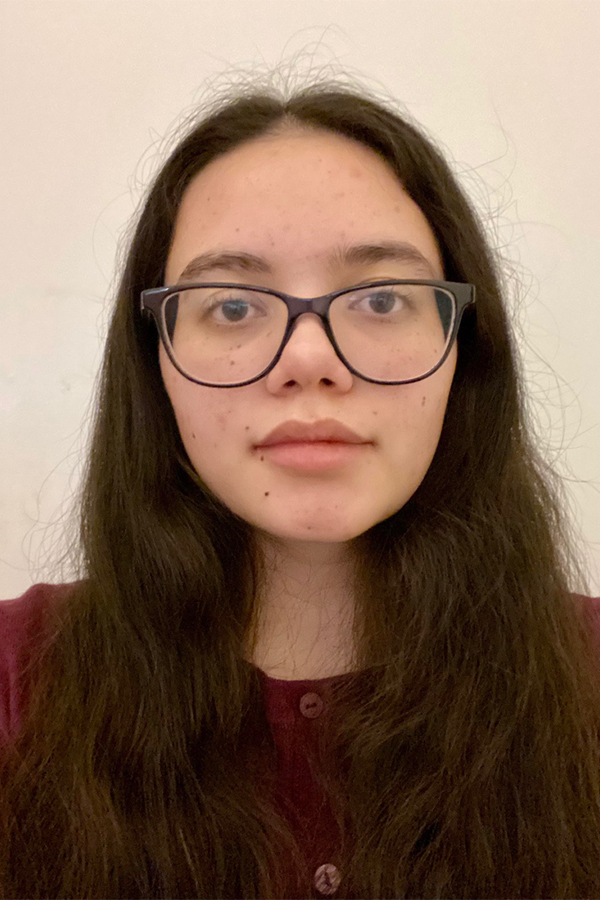
Angelica Whisnat
Physics Major
Angelica Whisnat
Major: Physics
CPP Faculty Mentor: Dr. Matthew Povich
Angelica is an incredible Filipino American student who grew up in California. She is a Physics major and focuses her interests on Astronomy. Angelica has dreams of becoming an educator in the future.
Angelica has loved her experience in the RIO program so far because of the opportunities that it has provided her and the supportive people she has met along the way. One of the highlights of the RIO program for Angelica is the workshops because of how informative they are.
The research program that Angelica is working on involves designing a website using Zooniverse, which is a platform that allows citizen scientists to help with research. The website that she creates is then used for high school and college students in astronomy courses. It allows them to make measurements on stellar wind bow shock nebulae. The measurements taken will benefit students because it is used to obtain the apparent shape of these objects, as well as their actual shape and inclination angles. This information is necessary to help understand the strength of stellar winds of the stars creating bow shocks.
Angelica became inspired and motivated for this research project because of her love for astronomy; this research project only helped grow her love for it! She is extremely grateful for the opportunity to study it further and is excited to continue this project. Her favorite part of this research project is that the website she is developing has a teaching element to it. She must present the findings and is excited to make it user friendly and understandable to students that are new to physics.
Angelica has gained immense research skills throughout the duration of this project. One of the things that she is proud of accomplishing is time management and balancing research and academics. This has led to an increase in confidence for future research projects. Although it was daunting at first, Angelica was able to refine her skills regarding astronomy research.
Angelica plans to apply to graduate school in the future and her research is an amazing step forward to help accomplish this academic goal. She wants to pursue a degree in Astronomy, thanks to being introduced to many different parts of Astronomy research through the RIO program. Using her skills and continuing to learn more about Astronomy, Angelica wants to become an educator in the future to pass on all her knowledge.
Advice to Students
Advice that Angelica would give to those wanting to get started in research, it would be: “to not feel overwhelmed. Your mentor(s) are there to help you throughout your journey, and it’s okay to ask for help when you need it.”
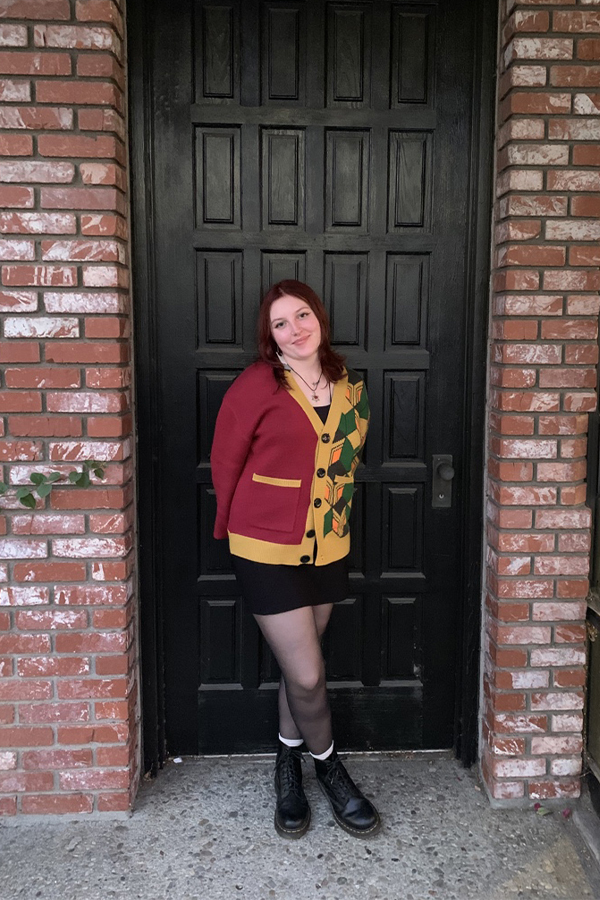
Cherish Jenkins
Biochemistry Major
Cherish Jenkins
Major: Biochemistry
CPP Faculty Mentor: Dr. Thomas Osberger
When Cherish Jenkins is not at school or working, she wants to challenge herself and be a part of a bigger idea. Despite not previously having the resources to accomplish what she has always dreamed about, Cherish takes on these challenges as she goes forward on her academic journey. This includes challenging herself via the RIO program! She adds, “a reason why I push myself so hard and decided to participate in RIO is my family never had to option to do such a thing that could benefit them in the long run.”
Cherish’s research project studies the synthesis of novel molecules that come from a material known as pinene. These molecules are transformed into cis-ponic acid and different things beyond. She uses extraordinary techniques in her research that she learned from organic chemistry courses. One example she shares, Cherish has been able to learn that it is possible to create new molecules that can be tested for their future potential in medicine!
Cherish’s main motivation for pursuing this research project is to better her future. She often works with materials and ideas that are foreign to her, so she works with her professors and peers to succeed in her research. Being a part of the RIO program has allowed Cherish to improve many different skills that will help achieve her academic goals, including working and communicating with a mentor.
As Cherish continues to work on her research project, she envisions herself working towards obtaining an internship at the Orange County Crime Lab. Her experience and confidence in her research abilities will set Cherish apart from other competitors when applying to graduate school. She wants to have the opportunity to have an internship by the end of her undergraduate academic journey and hopes to pursue a PhD in the future
Advice to Students
Some advice that Cherish would like to give to other aspiring researchers is to look for different opportunities around you to see what is available. She also states that connecting with a mentor is an important skill that many people would be able to learn and use to better themselves. Cherish wants to emphasize that students introduce themselves to the material they are interested in researching even if they are not familiar with it. This will allow students to see what they can learn and gain from research and the benefits it provides for the future.
Cherish states “Anyone is capable of doing research even if they feel that they are underqualified.”
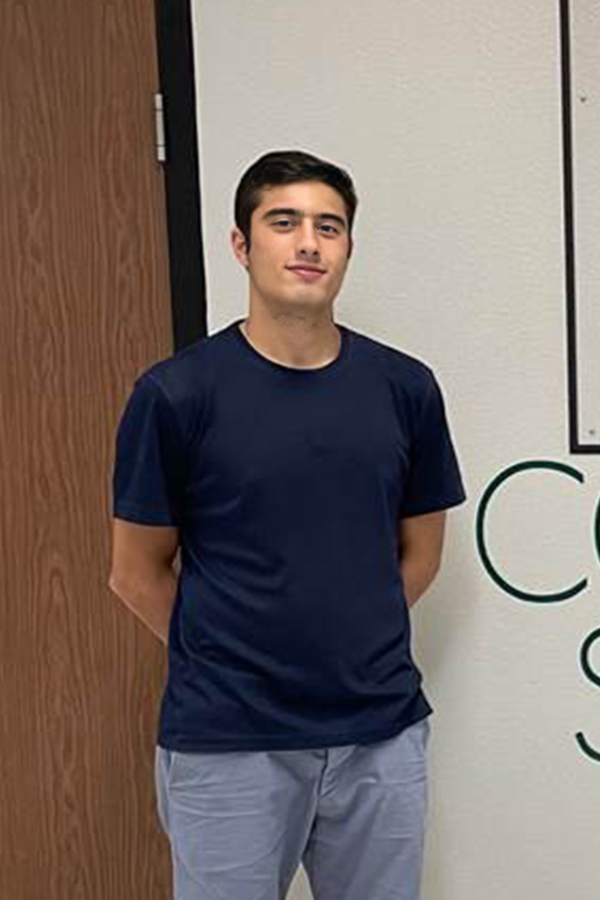
David Akopyan
Computer Science Major
David Akopyan
Major: Computer Science
CPP Faculty Mentor: Dr. John Korah
David Akopyan is an inspirational junior transfer student who is originally from Moscow, Russia. His story begins with his Armenian descent and moving to the United States 4 years ago to help further pursue his academic endeavors. This is his first year as a RIO student and it has helped him develop exceptional skills that he is able to use for research and beyond.
David’s research project is about using machine learning algorithms in cybersecurity. He is learning different techniques that can detect anomalies of data. He became motivated to participate in this project because of his love for cybersecurity and artificial intelligence. Through his research, he wanted to explore the way that those two areas could be combined.
David used his newfound problem-solving skills to overcome his struggles of learning something new. He would stop at nothing to find the correct answer and wanted to achieve excellence in all areas of his research. Some of the research skills that David was able to determine were being able to look for information more effectively and communicate better with his teammates.
After learning these skills, David is very confident and excited to tackle a new project. His research will undoubtedly help better his future academic and professional goals and his experience will be useful for job searching.
Advice to Students
If David had to give any advice for other aspiring researchers, it would be: “Don't be afraid to do it because of time or knowledge, because professors help you all the way and you're never left alone to do it. You get a lot of connections and help from RIO staff and other people participating in the research.”

Shane Dirksen
Computer Science Major
Shane Dirksen
Major: Computer Science
CPP Faculty Mentor: Dr. Hao Ji
Shane Dirksen is a first-generation student, as well as a US Army veteran. So far, he feels that the RIO experience has been very beneficial for him. He says that he has learned a lot from the workshops and is getting enjoyment out of his research. In his project, he is creating an object in a 3D modeling software, pulling the alpha channel from the rendered image, scanning the image with a python program, and feeding it into an Artificial Intelligence program that will learn to identify the image.
Shane was inspired to get involved in this project because he hopes to gain research experience before pursuing a Computer Science PhD in the future.
While Shane has gone through some struggles in his research, such as learning how to use the 3D modeling software, his faculty advisor, Dr. Ji has proven to be a great source of support and assistance on such issues.
Shane has gained several necessary research skills during RIO, such as learning to be a self-starter, since it has been his responsibility to learn things on his own. Additionally, he now feels more comfortable with the idea of engaging in future research projects.
Advice to Students
Shane offered some wise words to those wanting to begin research: “Join as many programs as you can handle. Gain as much experience as possible while maintaining good grades.”

Angelita Araujo
Biochemistry Major

Ethan Chavarin
Chemistry Major

Caitlyn Cruz
Biology Major

Thanya Gurrola
Kinesiology Major

Matthew Luna
Physics Major

Parth Singh
Computer Science Major

Tan Tan
Chemistry Major

Sydney Williams
Kinesiology Major

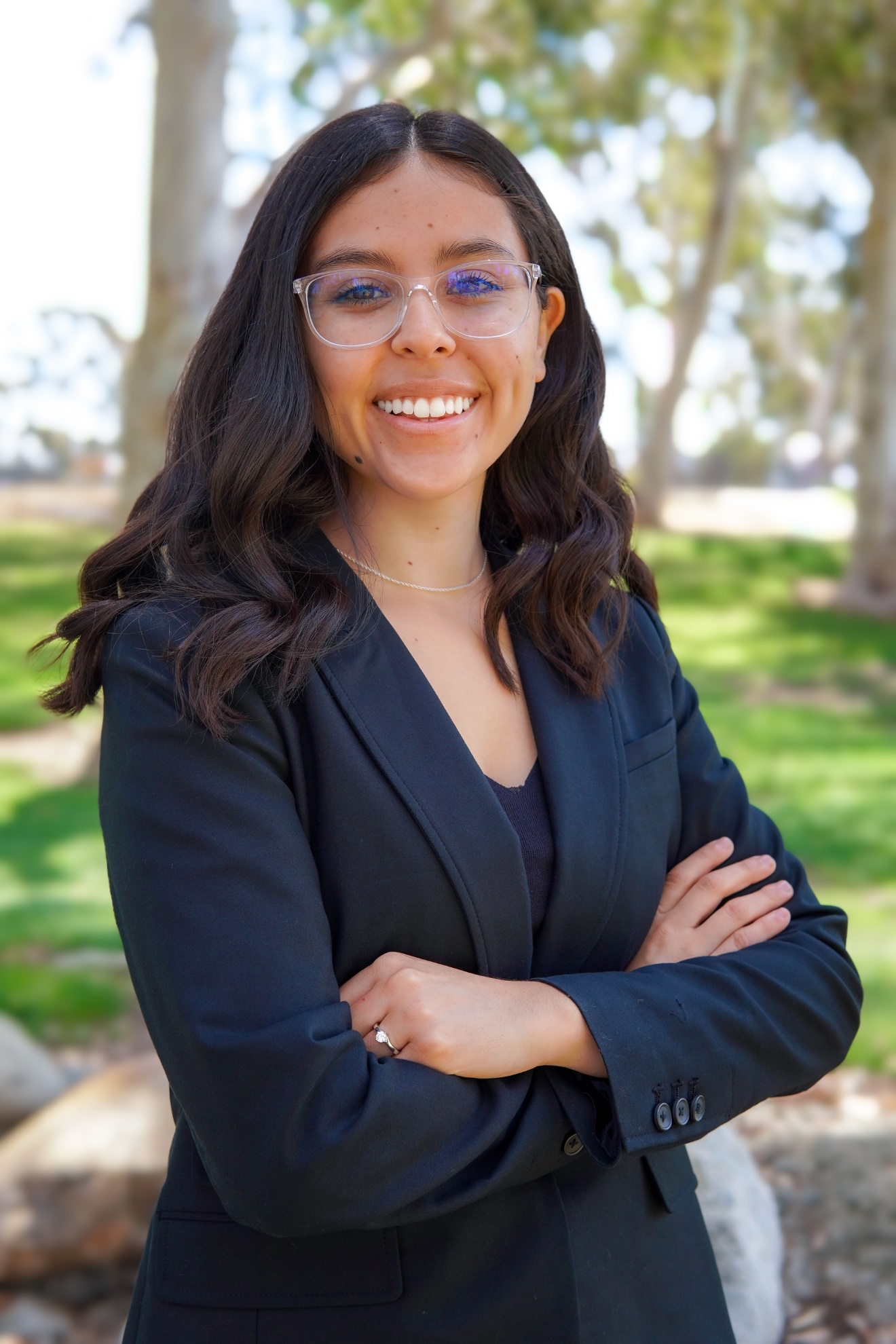
Ivanna Marroquin
Animal Science Major, Pre-Vet Emphasis
Ivanna Marroquin
Major: Animal Science, Pre-Vet
CPP Faculty Mentor: Honggang Wang
Ivanna is a sophomore majoring in Animal Science, Pre-Vet. Her best friend is her dog, Duke, and she is a Salvadorian-raised single mother. Thus far, Ivanna has had an enjoyable and fulfilling experience with RIO and appreciates all the knowledge that she is learning from her her mentor, her research administrator, and her colleagues.
Together with faculty advisor, Dr. Honggang Wang, and colleague, Jose Ortiz, Ivanna is creating a blockchain for agriculture. They are researching and incorporating blockchain technologies to better advance current operations inside a food supply chain. Ivanna’s initial attraction to this project was the agricultural aspect of the research since she is an animal science major. However, now, she has become interested in the blockchain aspect, and is excited to learn how to use Python.
Ivanna has not gone without her share of struggles during the research process. She says that finding time to do research has been a little challenging with everything she has going on. However, she adds that the time that she’s invested into research has been interesting and even intriguing. Ivanna adds: “I have found that blockchains are simple to describe but are complex to make.”
Along with her struggles, Ivanna has gained valuable research skills. She has found that the way that she gathers information has evolved. Whereas before, she would write everything down, now she has learned that with so much material to process, it is neither helpful nor efficient to write down everything. Instead, she now only writes down the key points of an article, which cuts down on time and energy spent.
After having embarked on her research journey, Ivanna now feels more confident working in future projects, particularly those related to her major. She says that she is happy to have the experience under her belt, since she aspires to attend grad school. There she hopes to conduct her own research.
Advice to Students
To other undergraduates who seek to do research themselves, Ivanna has this helpful advice: “I would recommend the RIO program. It is a wonderful and extremely helpful guide into research.”
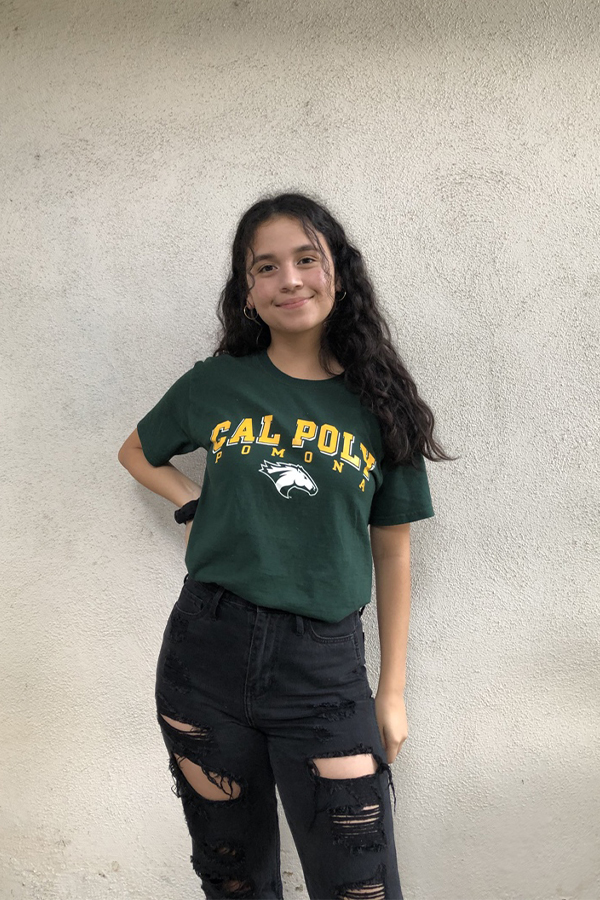
Maribel Diaz
Nutrition Science Major
Maribel Diaz
Major: Nutrition Science
CPP Faculty Mentor: Dr. Joan Leong & Dr. Aaron Fox
Maribel is an outstanding first-generation Mexican student who is currently studying Nutrition Science. She is currently in the process of transitioning into becoming an Animal Science major because of her future goal to become a conservation veterinarian.
Maribel loves being part of the RIO program although it seemed intimidating at first. As an underrepresented minority, she at first never thought that there was a place for her in research but was soon shown otherwise because of the support and opportunities the RIO program gave her to begin her research.
Maribel is assisting in a collaborative field project with Dr. Joan Leong and Dr. Aaron Fox. This project consists of conducting several experiments that seek to examine the movement patterns of beneficial insects in local agricultural fields. Using an immunomarking technique (protein markers and ELISA), Maribel will examine how beneficial insect movement patterns differ at the edges and in the center of these fields.
Maribel was inspired to become involved in this research project because she knew that it would expose her to many elements of undergraduate research and because it aligns with her future career goals. She was drawn to the fact that the project had both in person fieldwork and lab days in order to help broaden her knowledge of research.
Despite her beginning struggles with understanding peer-reviewed research papers, Maribel has now made a skill of hers. It has allowed her to gain confidence in doing things that she previously may not have thought were possible. This new confidence has allowed Maribel to explore the possibility of future research projects and she hopes that she can continue to get involved after her time in the RIO program. Maribel hopes in the future to help conserve the Earth's biodiversity and hopes that her current research project will assist her in accomplishing her future goals.
Advice to Students
If Maribel could give any advice to students who would like to get involved in research it would be “Do not be afraid of asking for help! If this is your first time participating in a research project, you are going to need to get all the help you need. Being involved in research is not an easy task but you should know you are not alone.”
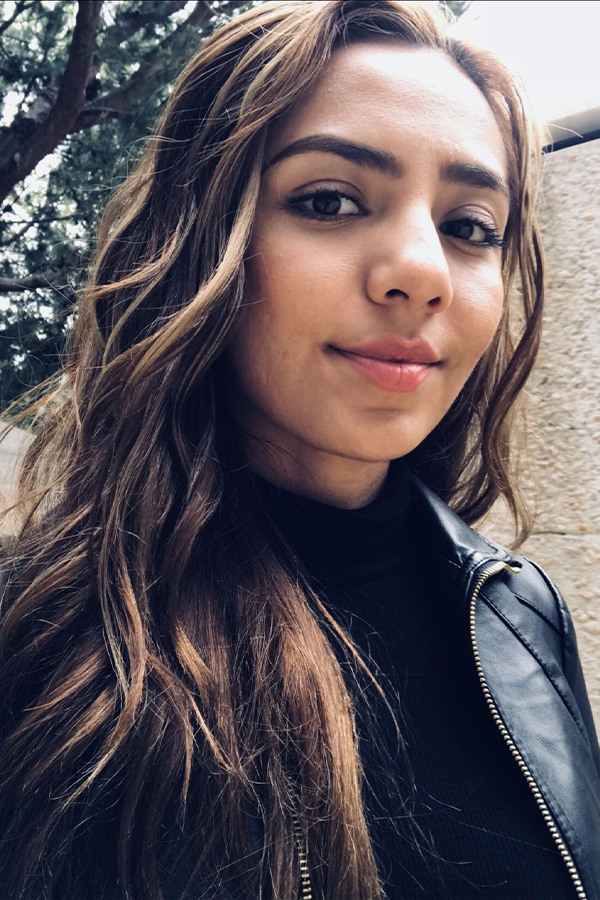
Nancy Hernandez
Apparel Merchandising and Management Retail Major
Nancy Hernandez
Major: Apparel Merchandising and Management - Retail
CPP Faculty Mentor: Dr. Helen Trejo
Nancy was born in Mexico, moved to the U.S. in 2017, and then started college as an Apparel Merchandising and Management student. She was introduced to fashion at an early age from her mother’s work as a seamstress. Nancy learned many techniques from her mother growing up. Her interests in entering a career in fashion have expanded include appreciating the processes of the business development side and understanding how brands grows and are developed to be successful. Nancy joined RIO because she sees the connection and purpose of research and how it can be applied to her future career aspirations. Through her research, Nancy sees many opportunities and ideas that can be applied to her field.
Nancy’s research project focuses on the current developments in footwear materials. She has been participating in webinars about topics related to the leather industry. She is learning about the processes on show design, conducting a literature review, and writing annotated bibliographies.
After reading the project description, Nancy immediately thought this topic would be helpful in her career development. Being from a city in Mexico where they create many leather products like shoes, handbags, wallets, and others, Nancy thought that the opportunity to learn more about the topic of leather apparel could help her find ways to apply a different model to current business industries in Mexico and United States.
In terms of her struggles thus far, Nancy mentioned that she has needed to adapt and try to have better time management because if she does not have a set routine, she can lose concentration. One way she has adapted is by finding physical spaces that give her focus to better concentrate like studying with a group or finding a quiet place on campus. Further, Nancy also tries to stay ahead of her assignments by accomplishing small victories every day and by doing tasks, school, work, and research.
Nancy has learned topics related to leather and have been working in research alternative methods in providing sustainability options and materials that can be used in footwear.
Nancy is still developing her confidence being this early in her research project. However, she now has direction on how to start the research process in digesting and writing a literature review.
When asked about how research connects to her future plans, Nancy stated, “I definitely see a future using the learnings from these programs. I will like to connect the learnings from these programs into my own business.”
Advice to Students
For students thinking about research, Nancy mentioned that students need to be focused, learn time management, to not to be anxious on the organizing of the study, and make time to focus on academic courses.
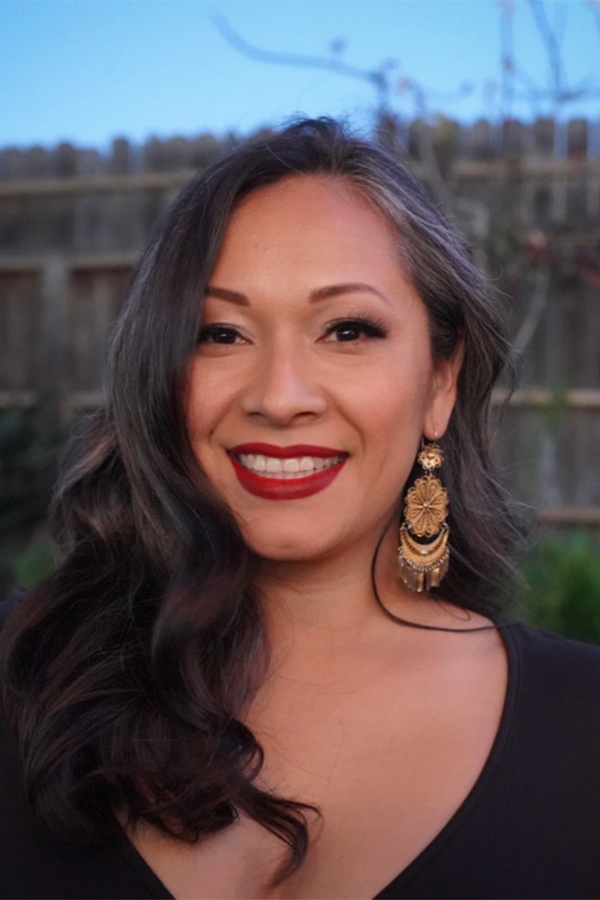
Rosalie Rodriguez
Nutrition Science Major, Pre Health Emphasis
Rosalie Rodriguez
Major: Nutrition Science - Pre Health
CPP Faculty Mentor: Dr. Rosa Lamas Serratos
Rosalie is a non-traditional EOP parenting student who has returned to college to pursue a nutritional science degree with a pre health emphasis as she prepares to apply to medical school.
Rosalie’s research team, led by Christianne Yapor, a CPP senior, is creating and analyzing edible coatings that will be applied to whole avocados. They are analyzing the effects of these coatings on weight loss, firmness, and color change of the avocados, with the hope of extending their shelf life.
Rosalie’s motivation to do this project was simple: she was excited about extending an avocado’s shelf life! Says Rosalie: “Who doesn’t want to keep their avocados ripe for longer?” At first, Rosalie was a little intimidated, as this was her first experience being in a lab after so many years off; but she has a strong support group and is happy to be working on a project that she can easily explain to her family and friends.
Although Rosalie’s research group is still in the beginning of the project, she has already learned valuable skills that are unique to her field, such as learning about particle analyzers, microfluidizer, texture analyzer, spectrophotometers. She has also gotten to work with Zein, a corn protein that is widely used but tricky to work with.
Working on this project has helped Rosalie’s confidence grow on an almost daily basis. She loves that she is able to get in the lab and work with her team. She is certain that once the school year is completed, she will possess all the necessary tools and the courage to seek out graduate level research projects.
Rosalie has big plans for the future. She aims to be part of the MD research team that conducts research for the American College of Lifestyle Medicine to help combat the mortality rate of BIPOC (Black, Indigenous and People of Color) due to chronic disease.
Advice to Students
To those wanting to begin research, Rosalie emphasizes that it is ok to be intimidated or unsure of one’s capabilities in the beginning of research. “We all had to start somewhere,” she adds. She says that through this research experience, her mantra has been “I’m here to learn. I’m going to make mistakes and that’s okay.”

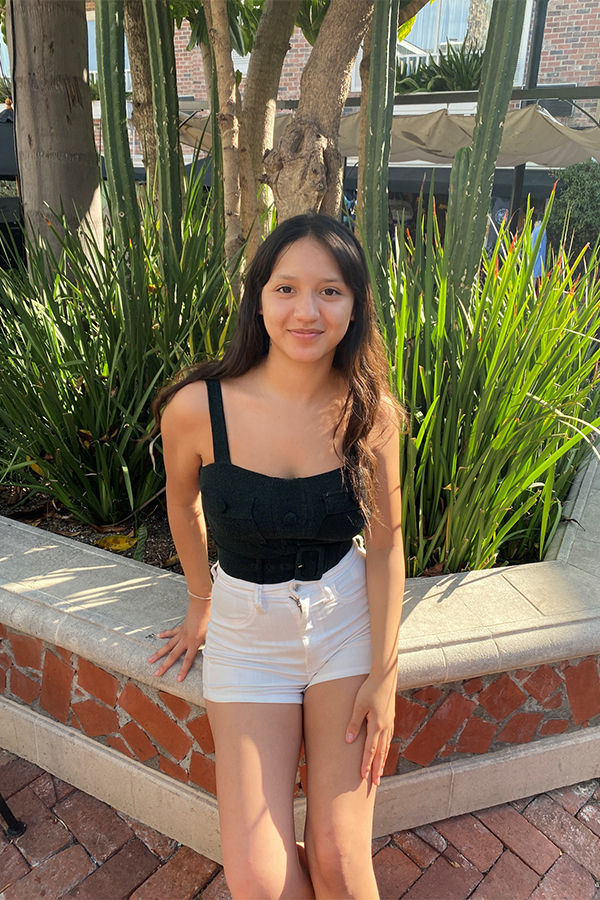
Jazmin Rosas
Electronic Systems Engineering Technology Major
Jazmin Rosas
Major: Electronic Systems Engineering Technology
CPP Faculty Mentor: Dr. Farbod Khoshnoud
Jazmin Rosas is a 2nd year Cal Poly student. She has had a great time in RIO thus far. Part of what makes the experience so great for her has been the supportiveness of the program, as well as the learning opportunities. Learning how to get started in research, and how to build a relationship with advisors have been especially helpful lessons for Jazmin.
Jazmin’s research project centers on improving the power conversion efficiency for perovskite solar cells. Her paper will focus specifically in improving the spectral response from near-infrared and ultraviolet light which will help increase conversion efficiency.
She was motivated to work on this project because of a longtime passion for renewable energy. She finds it very important to invest in resources to improve upon it.
Jazmin’s biggest struggle during this project was narrowing her research topic. She managed to overcome this struggle by breaking down topics into smaller components and choosing the one that appealed to her the most.
While in RIO, Jazmin has learned a few crucial research skills, such as learning how to locate relevant information, and learning how to successfully communicate with her advisor.
Looking forward to her future, Jazmin says that feels great confidence and interest in pursuing research projects in the future. Jazmin adds: “this experience has showed me the importance of research and has also been a good way to gain an insight on my major.” She wants to continue research in part because it is the only way that progress can be made in technology. She therefore sees research being an important part of her education and career.
Advice to Students
To students seeking to participate in research for the first time, Jazmin says to take advantage of opportunities, to explore topics related to one’s interests, and to keep an open mind. Jazmin adds, “A positive attitude will make the process easier and more enjoyable.”
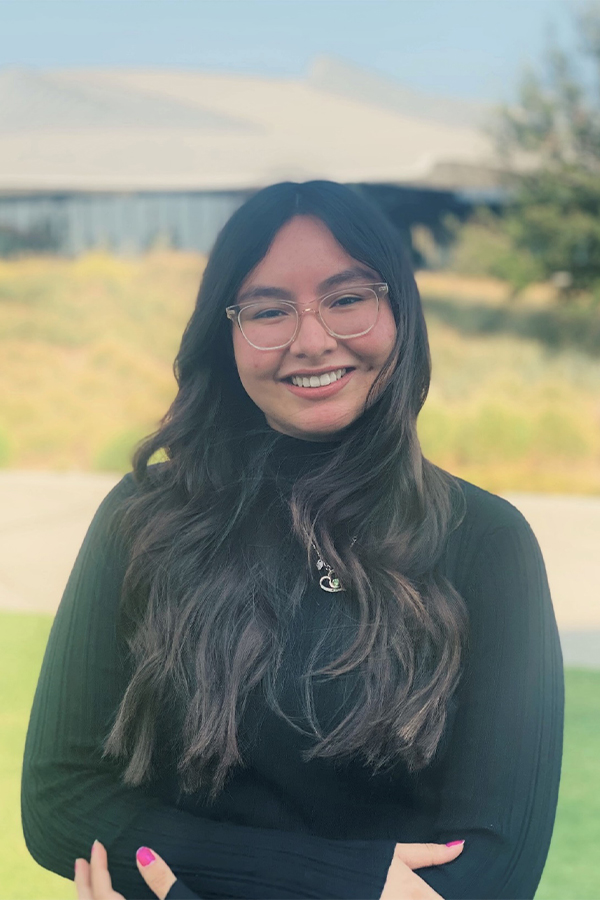
Jennifer Villaba
Civil Engineering Major
Jennifer Villaba
Major: Civil Engineering
CPP Faculty Mentor: Dr. Jeyoung Woo
Jennifer is a first-generation Latinx transfer student. Before attending Cal Poly, she attended Bakersfield College where she had the opportunity to be part of the Dwight David Eisenhower Transportation Fellowship Program. This sparked her interest in research and discovered the RIO program to further her interest. The RIO program has been an amazing experience for her, in part due to the amazing support and guidance it has provided.
Jennifer is currently working on identifying the critical success factors that affect transfer students' success. Along with this, she is creating a survey to administer to students at Cal Poly Pomona to recognize which critical success factors are prominent. The survey will consist of a set of questions covering four different categories: demographic background information, academic performance, institutional experiences, and commitments and support.
Jennifer was motivated to become a part of this project because she wants to acknowledge the university's lack of offering, and of implementing the resources needed for transfer students to achieve academic success, especially since transfer students tend to have limited time at the university.
Naturally, Jennifer has had some struggles along the way of her research journey, such as using the Library database. However, she was able to eventually navigate it by utilizing the Library Resources for Student Researchers workshops.
Jennifer has learned quite a few research skills during her time in RIO. She has improved her writing efficiency and ability to write professionally. She has also learned how to communicate effectively with her professor, how to have better time-management, and how to search for information through databases.
Jennifer’s research will provide her the opportunity to open doors to research within her field of study. Moreover, the research she is working on will help future fellow transfer students coming to Cal Poly Pomona and have a smoother transition process.
Advice to Students
Jennifer has some wise advice for students wishing to get started in research. She says: “research brings new opportunities on topics you are passionate about, and provides experiences that are memorable! Be ready to be committed to how timely it is, but recognize that the outcome of what you produce is worth it.”
Beyond being a RIO scholar, Jennifer is also part of the Concrete Solutions team for the Associated Schools of Construction (ASC) Region 6 and 7 competition. Additionally, she is a member of American Society of Civil Engineers and Rose Float E-board.
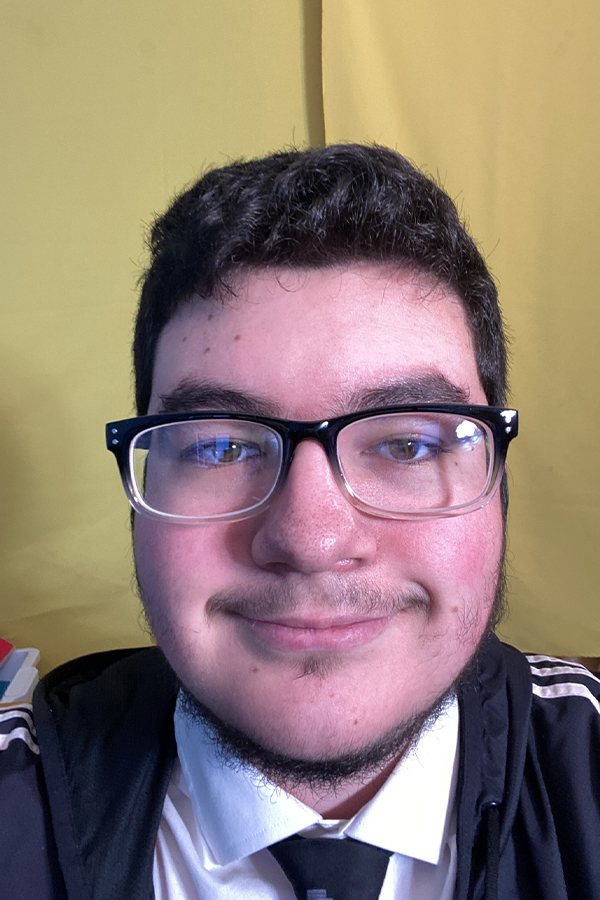
Ruben Torres
Computer Engineering Major
Ruben Torres
Major: Computer Engineering
CPP Faculty Mentor: Mohamed Aly
Ruben is a hardworking student who is proud of his Hispanic heritage. Together with his faculty advisor, Dr. Mohamed Aly, Ruben is working on a RIO project that makes use of his love of computers and electronics.
While the project has been hands-off so far, Ruben is performing essential preparatory work that will provide the foundation for his research project. Currently, he is strengthening his coding skills in C and Python as well as developing insight into cryptography. Ruben was motivated to become involved in his research project out of a concern that future quantum computers will pose a risk to many security measures put in place. He was curious about how systems could be secured against quantum computers.
Ruben’s struggles so far in the research process have included time management and finding opportune time to study. To overcome these struggles, Ruben now plans out what he will do for the week. As for studying, he admits that he sometimes has excess energy, and he’s found it useful to expend it before beginning his research.
Besides gaining time management and coding skills, Ruben has also developed the confidence to engage in future research projects. That being said, he believes that, for him, it might be best to do future projects in the summer, rather than during the Spring or Fall semesters.
Ruben’s research project serves as a pathway to his plans for the future. His research has given him a connection to the cryptographic world, which will prove vital should he plan to work in the field of cybersecurity. However, Ruben acknowledges that even if he were to work in a different field, the coding skills he’s learned will prove very useful.
Advice to Students
Ruben’s experiences in research have provided him with insight that will no doubt prove useful to beginning researchers. To them, he says: “I would recommend they try to stay focused when researching as it can be rather dull and also not to be scared to reach out to their mentors whenever they need help as they most likely will be happy to aid in whatever way they can.”

Lerna Eiesagholian
Aerospace Engineering Major

Kirill Rogovoy
Civil Engineering Major

Francisco Sanudo
Aerospace Engineering Major

Sheng Tan
Civil Engineering Major (Geospatital Engineering option)

Devon Woodfine
Mechanical Engineering

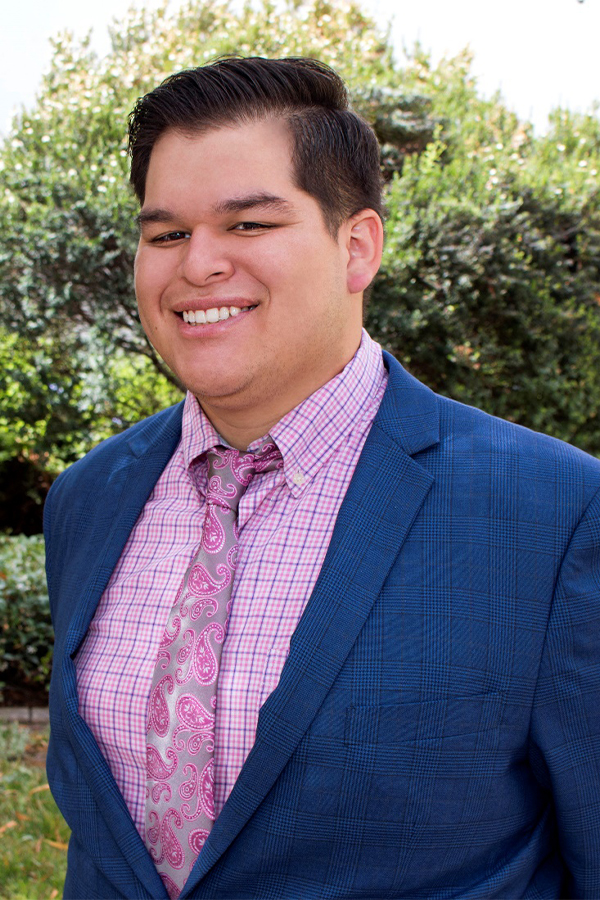
Edgar Olivar
International Business Major, Supply Chain Emphasis
Edgar Olivar
Major: International Business - Supply Chain
CPP Faculty Mentor: Xuesong (Sonya) Zhang
Edgar Olivar is a first-generation Latino RIO researcher. He described his experience in the RIO program that it has been nothing short of amazing. It has been a lot of work for him, but he has found the opportunity rewarding.
Edgar’s research is based on the website hosting bed and breakfast (BNB) site Air BNB. The research explores creating predictive modeling using machine learning in a mixed-methods design using both qualitative and quantitative research. For the qualitative section, Edgar looks at the listing description, review text, and for the quantitative portion, analyzes the location, number of rooms, features of an Airbnb property on the listing price to create a predictive model for the price. His role in the project has so far had his research scholarly articles to extract information to back up other price prediction models for Air BNB listings.
Edgar’s motivation in this project has been guided by his career goal to personally own and rent residential and commercial real estate. Which is tied very closely to utilizing Air BNB as a platform to rent and lease real estate.
While the research has been rewarding, Edgar explains that it is not an easy feat. He describes that finding information and time management has been difficult, however, “like all things in life, it’s finding a healthy balance of time.” Reminding himself why he began this research journey and what all the hard work is for, he says he “has people depending on me to bring quality work. My professor told me an amazing quote, "Just like Dory told Nemo, "Just keep swimming!"
Edgar has gained many research skills, including time management, discipline, and presentation skills. Many of these skills will be transferable to his career and personal life. Conducting a literature review helped Edgar learn how to find articles and be able to present the raw data. Edgar also believes that his research is very closely connected to his career goal to own and rent real estate.
Advice to Students
For students thinking about conducting research, Edgar gives this advice: ”Just go for it because research is worth the effort. It is okay to take failure as a learning opportunity and try again. It is not about how many times one fails; it is about how many times one is willing to get back up and try again. Life is about learning lessons and utilizing those experiences to solve problems. That is what research is about.”
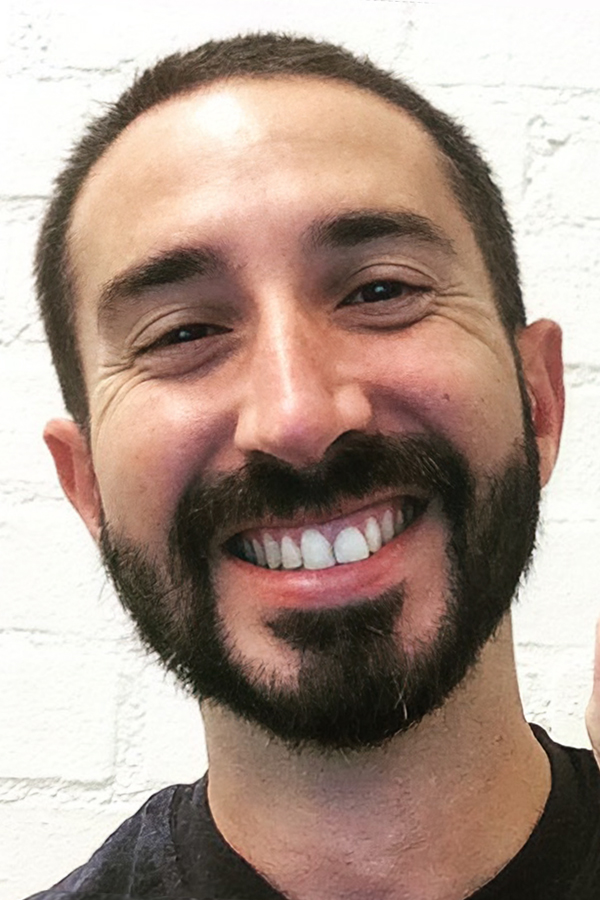
Jose Ortiz
Computer Information Systems Major
Jose Ortiz
Major: Computer Information Systems
CPP Faculty Mentor: Honggang Wang
Jose Ortiz has been fascinated by computers and technology since he was young. Upon learning to program, he realized its potential, and the power and control that it offered. In addition, it has maintained an air of magic and mysticism for him, one that is captivating and awe inspiring. His initial interest from so long ago has evolved into a perpetual curiosity, a fiery passion, and finally, a devoted discipleship. Jose adds: “The RIO program has offered my history, talents, and energies a place where they can be fully engaged and made alive.”
Jose’s RIO project is intended to deploy a small but functional blockchain technology focused on urban farms and the food supply chain. He adds, “Blockchains are an ideal solution with respect to the food industry because of the security, transparency, accuracy, and speed by which data can be created and recalled.” Jose emphasizes that this is particularly helpful when proving organic requirements, preventing food fraud, tracing foodborne illnesses, and ultimately food recalls.
Jose became motivated to embark on his research journey when his faculty mentor piqued his curiosity about applications of blockchain. Prior to that, he had never worked with them, and only knew of them as a component of cryptocurrency. However, when his faculty mentor explained their broader implementation, including in the food industry, Jose became intrigued and agreed to participate in the RIO project. He is fascinated by how clever the technology is.
Being a part of RIO has taught Jose several important research skills that will no doubt give him a leg up in the academic and career worlds. First, he mentioned that the greatest skill he’s developed thus far is to quickly scan documents, which is helpful given that researchers must sometimes look through dozens of articles when writing a literature review. Second, he has learned the research mantra: “if it is not useful just now, it may prove to be later.” Third, his research performance has improved through the RIO program; he is now able to quickly determine which terms and combinations will provide the best results. Lastly, he adds the skills that he has developed in his research have allowed him to feel more confident with engaging in future research projects.
As Jose works on his research project in RIO, he is looking to the future. His ultimate goal is to collaborate with scientists, researchers, and clinicians to combat Alzheimer's disease. Jose said that the experience he’s gaining in his project is helping him work towards that ambitious goal.
Advice to Students
To prospective researchers, Jose had this to say: “Make the time. The sacrifice is worth it as the rewards are massive, and the opportunities few. However, it will require that you dedicate and invest time.”

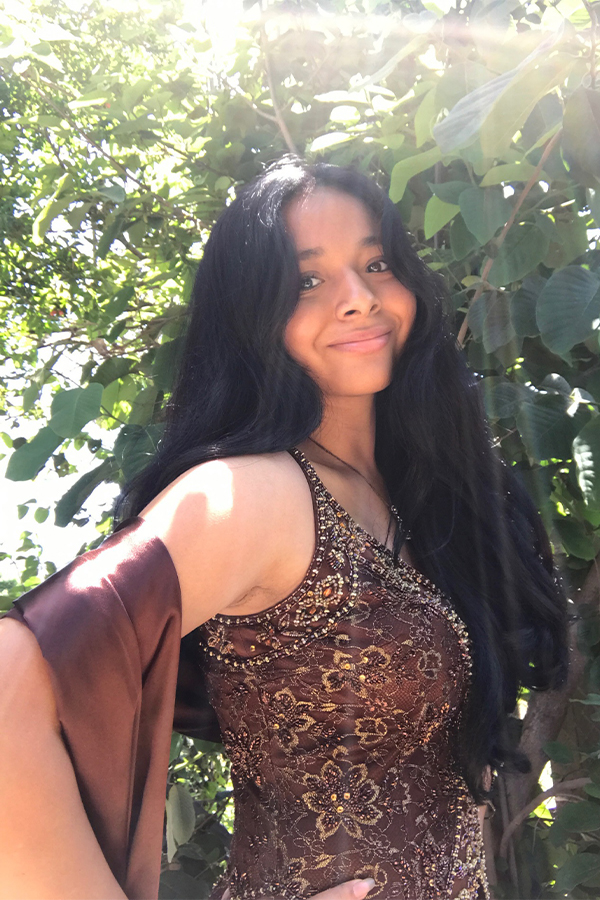
Jennifer Avila
Visual Communication Design Major
Jennifer Avila
Major: Visual Communication Design
CPP Faculty Mentor: Maya Stovall
Jennifer is a first-generation student from a Hispanic family. She has worked most of her life helping her parents at the swap meet. Since she was a child, art has been a huge passion for Jennifer. She has sold her artwork at her parents’ booth at the swap meet. Her development as an artist has been nurtured in RIO.
She says: “My experience since joining RIO has been so amazing. My mentor has helped me in numerous ways with my research and just growing as an artist.” She notes that having advisors and a mentor to help her along the way brings her a sense of ease. She also loves that she gets to have new experiences through RIO.
Jennifer’s project studies generative art. She noticed that there are not many Visual Communication Design (VCD) courses offered at Cal Poly Pomona, although noted that her faculty advisor, Dr. Maya Stovall, teaches an applicable course in liberal studies. It is this course that she analyzes in her research and is exploring how the class can help expand graphic designers' options in the working field, as well as help expand the ways they can become more innovative in a shorter time frame.
When she heard about Dr. Stovall’s class, she was fascinated by students’ work, and by the practical applications of the course topics, especially creating artwork by coding. Jennifer says that a part of her feels as though she is meant to get people’s attention on ways that one can find a new passion, such as through her RIO project.
In addition to her project that explores Dr. Stovall’s VCD course, Jennifer is also working with her on the project Neon Lights, which focuses more on historical events in conjunction with Dr. Stovall's artwork. Jennifer says that working with her has been a wonderful opportunity to learn from a contemporary artist like herself, as well as to learn about the ways in which one can expand upon their own art.
The path of research has not always been smooth for Jennifer. In the beginning, she struggled with researching the topic, as well as formatting. Furthermore, she had to attend workshops that were focused on STEM, rather than graphic design. However, communicating with her mentor helped alleviate these struggles tremendously. Also, reading current research on her topic helped her to get an idea of what her focus ought to be.
Regarding her future, Jennifer believes that her current research will provide a great connection to her aspirations. She says that learning new aspects about her topic can help other students in her discipline by expanding their knowledge in art and math. She would like others to know of alternatives to the traditional ways of creating art, where students can create amazing works of art regardless of their experience.
Advice to Students
Jennifer’s journey in the research world has left her with some very practical advice. She says: “I would encourage students to become more familiar with knowing they'll struggle, but overcoming that struggle takes a lot of patience and courage.” She adds that even if students don’t get accepted into a program like RIO, she urges them to seek out an advisor that they can work with, as well as seeking other ways of getting involved in the research process. Jennifer states that seeking help was the best thing she could have done for herself and for her research!

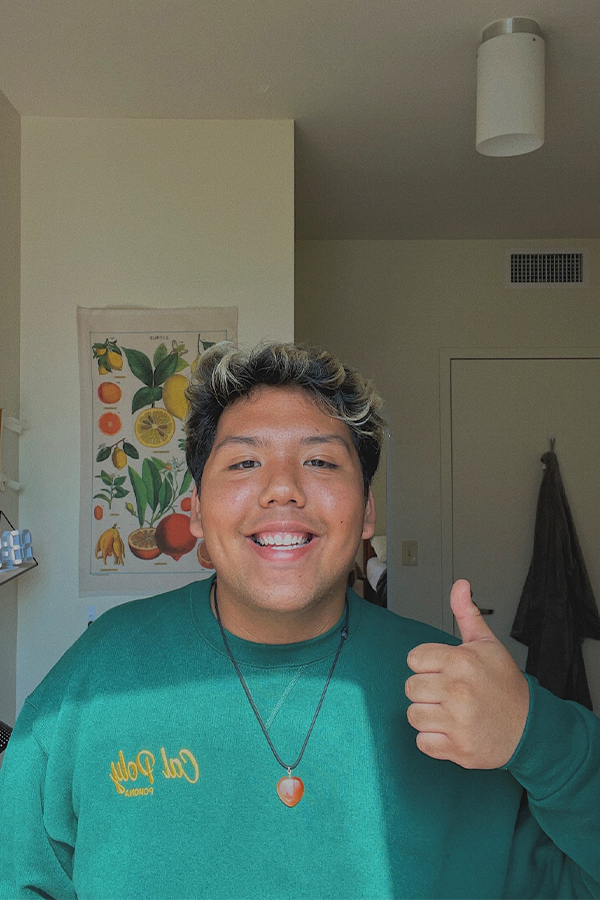
Kyle Kibic
Hospitality Management Major
Kyle Kibic
Major: Hospitality Management
CPP Faculty Mentor: E'lisha Fogle
Kyle is a first-generation Filipino American transfer student who loves food, art, fashion, and film. He is majoring in Hospitality with the hopes of one day owning his own business and traveling the world. Before beginning his RIO project, Kyle acknowledged that he had little knowledge of how research works but added that it has been fascinating to observe the process, and to be a part of its development. Kyle says: “I love our team, and I am really glad we can all collaborate and research the industry we are going into.”
Kyle’s research studies how amusement parks in Southern California have been impacted by COVID-19, given that the hospitality industry has taken heavy losses due to the pandemic. He and his research team plan to contact amusement park workers and find out how Covid has affected their operations, event planning, and more.
While his research journey has proven to be largely positive, Kyle has encountered his share of struggles. For example, he said that the waiting process has tested his patience at times. Since Kyle’s data is made up of interviews and other verbal data collection, he must wait to hear back from large corporations, which can be an exasperating process. Kyle was able to overcome this issue by looking at the big picture and understanding how both parties need have patience and to understand the value of the research.
Kyle has learned numerous research skills while in the RIO program. One simple but effective skill is the ability to speak on the phone in a professional register. Kyle says that it is important to show respect in interaction, since people will usually reciprocate that respect. Through this project, he has realize the true importance of good communication. Similarly, he has learned about the value of collaborating and asking for help when necessary.
After a couple months in RIO, Kyle already feels more confident in performing research, especially since he now understands the way it is structured. He says that the best way to begin research is to start with an issue, question, or idea, and plan from there.
Kyle’s research is providing him with practical experience that he can carry into the next phases of his academic career and beyond, especially since his current research falls under his field of study. He says that gives him helpful insight into the field before he jumps into it fully post-grad. Even beyond his academic field, Kyle’s project has taught him about communication, people, and data collection, all of which will be useful in virtually any field.
Advice to Students
To those hoping to begin research, Kyle has some simple but powerful advice: just go for it. Kyle says: “It is such a great experience, and you get to learn so much of the field that you are researching. You learn the value of the information that you obtain and collaborate with like-minded people.”


Kathleen Ramirez
Liberal Studies Major
|
Rio Profiles 2020-2021
|
|||||
|---|---|---|---|---|---|
|
Jorge Aranda
Computer Science
|
Devon Boyd Aerospace Engineering |
Dannielle Cabrera Psychology |
Teresa Campos Chemistry |
Natali Carmona Guzman Communications, PR Emphasis |
Marlene Colin Psychology |
| Jessica Coronel Biochemistry |
Barbara Flores Biotechnology |
C. Nia Horn Political Science |
Daeyoung Hwang Computer Science |
Bella Jimenez Communication Studies |
Dailin Johnson Psychology |
| Ana Jurado Mechanical Engineering |
Karolina Juscamaita Political Science |
Binnie Karki Biology |
Kimchou Lao Biotechnology |
Brandon Lentz History |
Breanna Li Political Science |
| Daniela Lopez Computer Information Systems |
Francis Manuel Manansala Civil Engineering |
William McKinney Mechanical Engineering |
Nency Patel Dietetics |
Thelma Perez Early Childhood Studies |
Daisy Rafael Undeclared Biology |
| Ethereal Reyes Communications, Multimedia Emphasis |
Aliann Safavi English |
Alex Salas Mechanical Engineering |
Juan Salcedo Anthropology |
Tristan Scharfenstein Computer Engineering |
Diana Solis Gender, Ethnicity, Multicultural Studies |
| Joy Sun Finance, Real Estate, Law |
Thomas John Tabayi Civil Engineering |
Danica Tacadena Biology |
Jesus Vargas Apparel Production and Management |
Eva Viveros Finance |
Jazlyn Wilson Psychology |
| Agatha Brenda Yaghoobi Mechanical Engineering |
Iris Yang |
Denise Zavala Psychology |
Amy Zhong Computer Science |
||
